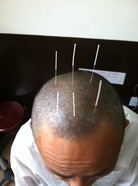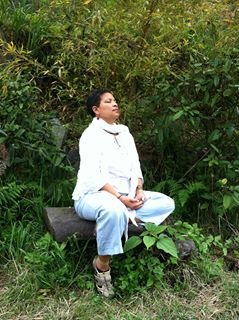
What is AOM Day?
"Acupuncture and Oriental Medicine Day is observed on October 24 to bring awareness to acupuncture and Eastern medicine. Acupuncture has become increasingly popular with 1 in 10 adults having received acupuncture at least once, according to a survey done by the National Certification Commission for Acupuncture and Oriental Medicine. The official commemoration for AOM Day began in 2002 and has been promoted by many organizations in the U.S. including the Council of Colleges of Acupuncture and Oriental Medicine. #AOMDay is also recognized in other countries such as Canada, Mexico and Pakistan. Annually on October 24, Council member colleges come together through activities to promote awareness and the benefits of acupuncture and Oriental Medicine.
The Council includes 49 accredited AOM colleges across the United States and welcomes other organizations to join in efforts as well. All Oriental Medicine -including acupuncture - is based on the idea of the flow of Qi throughout the body. Traditional Chinese Medicine believes that when we are ill, there could be a blockage or stagnation in our body’s natural energy flow, which affects the organ systems. Acupuncture is used to correct this imbalance through the specific placement of needles on the body.
How can acupuncture help you?
#Acupuncture and Oriental medicine have been known to help treat countless health conditions - everything from digestive issues such as abdominal pain and indigestion, to addiction, sciatica and high blood pressure. This treatment has been used for adults and kids alike and is essentially harmless, with almost no side effects. Not only is acupuncture effective on its own, but it is one of the most popular complementary treatments combined with conventional methods. The National Institutes of Health Consensus has stated that promising results have emerged, specifically for postoperative and chemotherapy nausea, vomiting, as well as postoperative dental pain, low back pain, carpal tunnel syndrome and more (Source: http://1.usa.gov/1eh3vxg, http://bit.ly/1JwvXWQ)
Quick Facts about AOM Day and Oriental Medicine:
- Oriental medicine, such as acupuncture, is a health care system that has been used for more than 3,000 years to treat illness and improve quality of life.
- All Oriental medicine is based on the idea of bringing the body to balance and improving the the body’s natural energy flow, which is called Qi. The World Health Organization has listed acupuncture as a useful treatment for more than 40 health conditions.
- Acupuncture is known to be helpful as a treatment on its own, as well as a complementary treatment.
- AOM day is comprised of international partnerships with professional associations, research organizations and educational institutions.
- The most common complementary and alternative medicines according to the NCCIH survey include acupuncture, acupressure, herbal medicine, Tai Chi and Q-iGong.
- The 49 AOM colleges and programs in the U.S. are all part of The Council of Colleges of Acupuncture and Oriental Medicine, which was established in 1982 for the goal of advancing acupuncture and oriental medicine and promoting education.
How Acupuncture Came to the United States:
Most people seek out acupuncture care for painful conditions. That makes sense, because it works extremely well at it, without drugs or medication. But you may be surprised by how many health conditions acupuncture has been known to help. Focusing on the whole body, one of the main goals of acupuncture is to return the body back to its natural balance and restore it to better health. By addressing the “whole” self instead of one particular part where there may be just pain or illness, acupuncture has the power to treat and heal a variety of ailments from nausea, sciatica to addiction. The most common effects you will feel after an acupuncture treatment include better sleep, relaxation, better digestion and more energy. Below are just a few ways acupuncture has proven to be beneficial:
- Acupuncture, cancer and immunity: http://wb.md/1R0hyoU
- Acupuncture and rheumatoid arthritis: http://wb.md/1xVxDTo
- Acupuncture and depression: http://bit.ly/SFReaB
- Acupuncture and allergies: http://bit.ly/1MJqH6G
- Acupuncture and fertility: http://bit.ly/1HCLEyc
- Acupuncture and insomnia: http://bit.ly/1iMtnE4

